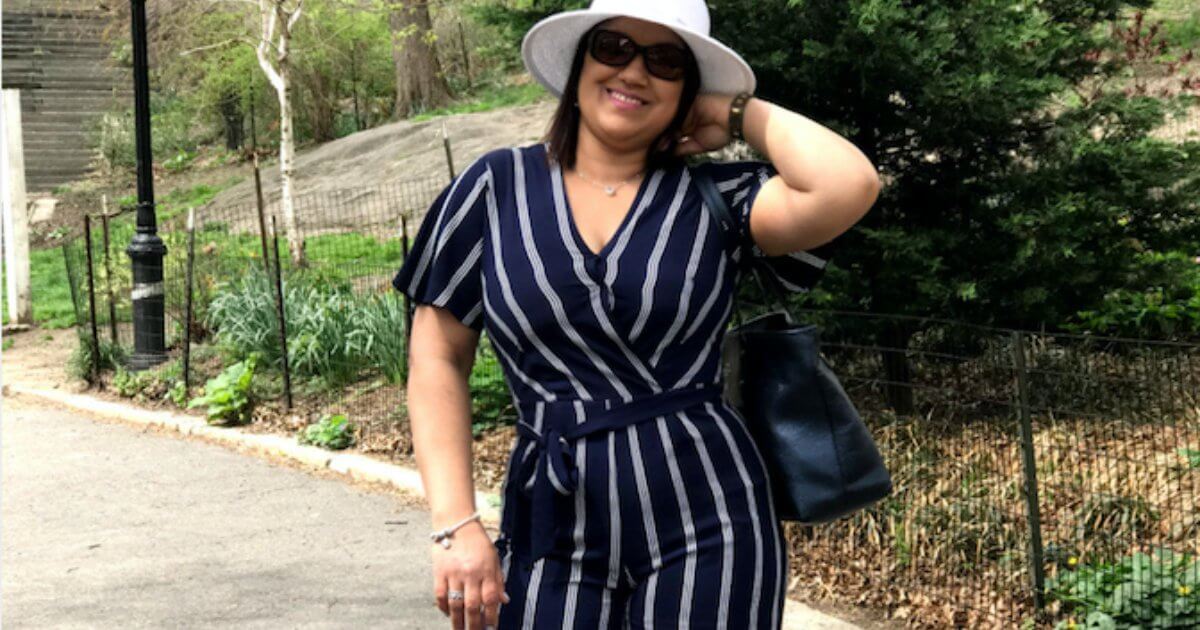Immunotherapy and Chemotherapy for Triple-Negative Breast Cancer
- At 42, Maribel Ramos was diagnosed with triple-negative breast cancer and participated in a clinical trial at NYU Perlmutter Cancer Center in February 2016.
- She received an experimental combination of immunotherapy and chemotherapy; five years later, she continues to thrive, with no detectable cancer.
- Immunotherapy treatments for triple-negative breast cancer have continued to develop in the same timeframe, offering patients options and reasons for optimism.
- The specific immunotherapy used in this case is called a checkpoint inhibitor. This class of medication helps fight cancer by turning off a part of the immune system that’s preventing the body from attacking the disease.
When Maribel Ramos learned she had triple-negative breast cancer, it was a tough diagnosis: This type of the disease is often hard to treat effectively. She was 42 years old, with three children. But her sister, a nurse at New York University, told Ramos about a study happening at NYU Langone Perlmutter Cancer Center, and she started her treatment in February 2016.
Although she didn't know it at the time, Ramos was randomly picked to receive a combined treatment of immunotherapy and chemotherapy. Within a few months, her tumors began to shrink. Eventually, a scan found no remaining signs of cancer. Now five years later, Ramos is still getting her immunotherapy treatments and she is thriving. Maribel is an extraordinary example of the immunotherapy revolution that is starting to help more and more people with cancer.Immunotherapy Plus Chemotherapy
The immunotherapy Maribel received as part of the study was atezolizumab (which goes by the brand name Tecentriq). The medicine belongs to a class of drugs called checkpoint inhibitors. These drugs work by helping T cells, a kind of white blood cell in the immune system, do their work of identifying cancer and attacking it, instead of attacking itself.
What's Next for Breast Cancer and Immunotherapy?
Read More5 Years After Treatment
Dr. Sylvia Adams, director of the Breast Cancer Center at NYU Langone’s Perlmutter Cancer Center, tells SurvivorNet, “The trial treatment was very successful for Maribel and she continues on the same immunotherapy regimen indefinitely, without the chemotherapy component.” Maribel's medical oncologist Dr. Franco Muggia proudly provided an update on Ramos since her initial treatment in a statement provided to SurvivorNet. "It is quite simple," Dr. Muggia explained. "She is doing very well, lightening up on her schedule of her maintenance checkpoint inhibitors every three to six weeks, adapting to her schedule off study, and also getting infrequent routine scans every six to nine months."Treatment for Early-Stage Triple Negative Breast Cancer
These days, Ramos tells SurvivorNet, she “feels great.”
That said, Dr. Muggia explains why Ramos is continuing with immunotherapy medication once every four weeks, down from once every three. “Fortunately, we are facing those ‘good dilemmas’ in oncology should we stop or not the treatment because all seems under control?” he says. That’s why the team opted to lengthen her treatment interval and perform fewer radiologic reassessments.
“When long-term treatment is needed, the importance of teamwork becomes readily apparent,” he adds. “The patient is part of the team, as are our colleagues and clinical research staff that refine and share information on the treatment regimens, the IV treatment unit staff, and lastly our nursing and office staff, [who] ensure trust and continuity of care.”
Living Like a “Healthy Person” And Thriving
Now, Ramos explains, “I am doing everything that a healthy person does.” This includes traveling to visit her parents in the Dominican Republic, and exercising she rides a bike in Central Park three to four times a week when the weather is good. She describes the side effects as “mild,” with headaches and some nausea, as well as some joint pain and the exercise helps for that.
Overall, she’s done well during the pandemic, even as her husband and one of their teen twins came down with COVID, recovering without incident. Happily, Dr. Muggia shares, "She is just doing great!"
Indeed, Ramos tells SurvivorNet she feels just “very lucky and grateful to get the medicine,” acknowledging her awareness of her “poor cancer prognosis” prior to treatment.
Advances in Immunotherapies for Breast Cancer
The research Ramos participated in opened the door for new developments in treatments that mobilize the body's own immune system to fight breast cancer. The FDA approved the combination therapy in 2019, and it’s now available commercially.
So what do all of these new advances mean for patients? “Becoming a long-term survivor is a testament to the power of immunotherapies,” Dr. Adams tells SurvivorNet. “Patients can go on with their lives, enjoy family, contribute to society.”
Sometimes the Hardest Thing About a Breast Cancer Diagnosis Is Telling Family
Ramos tells SurvivorNet that receiving this groundbreaking treatment "was like a second opportunity” at life. “I felt so lucky to get into the trial. [I] never thought twice about getting into the trial if I could."
Indeed, she’d tell any other candidate for similar treatment, “Go out and get the immunotherapy take it and don’t think twice. Five years ago I didn’t know if I would be here now. I have 12-year-old twin girls; I wanted to be here for them.”
And these days, she’s doing just that.
Learn more about SurvivorNet's rigorous medical review process.


